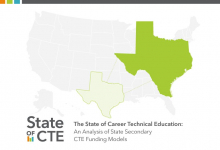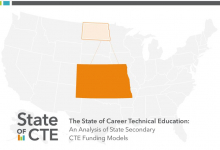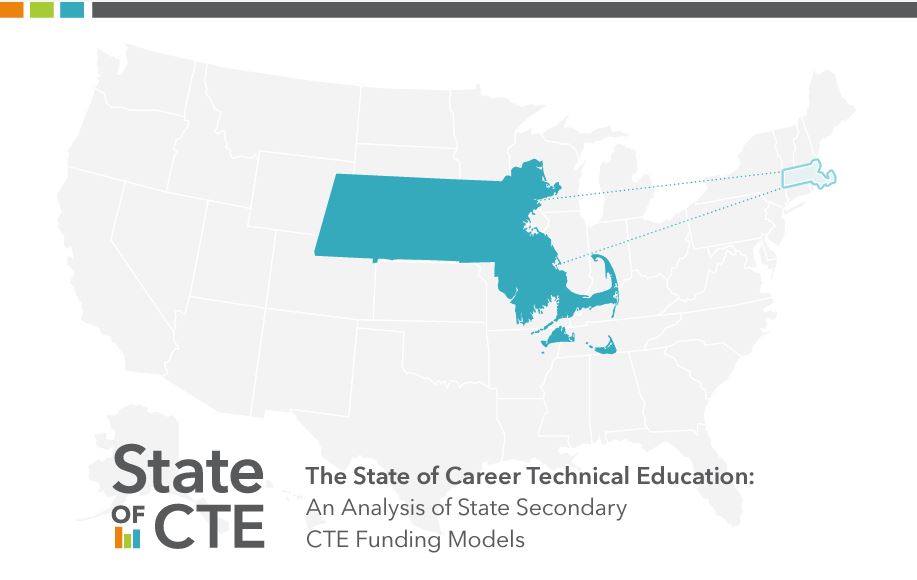The Bay State ranked second in the United States for Career Technical Education (CTE) funding per learner in fiscal year (FY) 2022. Massachusetts’ unit-based funding formula accounts for unique district characteristics and the costs of educating learners with more needs. This case study provides an introduction to the state’s secondary CTE structure, their implementation of the categorical funding model and unit-based funding approach for secondary CTE funding, and funding strategies that can advance equity and access for each learner.
This case study is part of Advance CTE’s 2023 State of Career Technical Education: An Analysis of State Secondary CTE Funding Models that provides a landscape of federal and state secondary CTE funding, highlights key trends in state funding design, and provides recommendations to advance equitable, learner-centered funding design.
A guide to secondary CTE funding basics and supplemental resources, including a 50-state map and state-by-state table can be found on the report microsite.
Since 2013, Advance CTE has released eight State of Career Technical Education (CTE) reports that provide a timely deep dive into key components of CTE policy and practice informed by state CTE leaders. For this report, Advance CTE used the definitions of foundational and categorical funding and the respective approaches found in State Strategies for Financing Career and Technical Education and created a new definition of hybrid funding to categorize state funding models for FY 2022. This report and supplemental resources are generously supported by the Walton Family Foundation.







